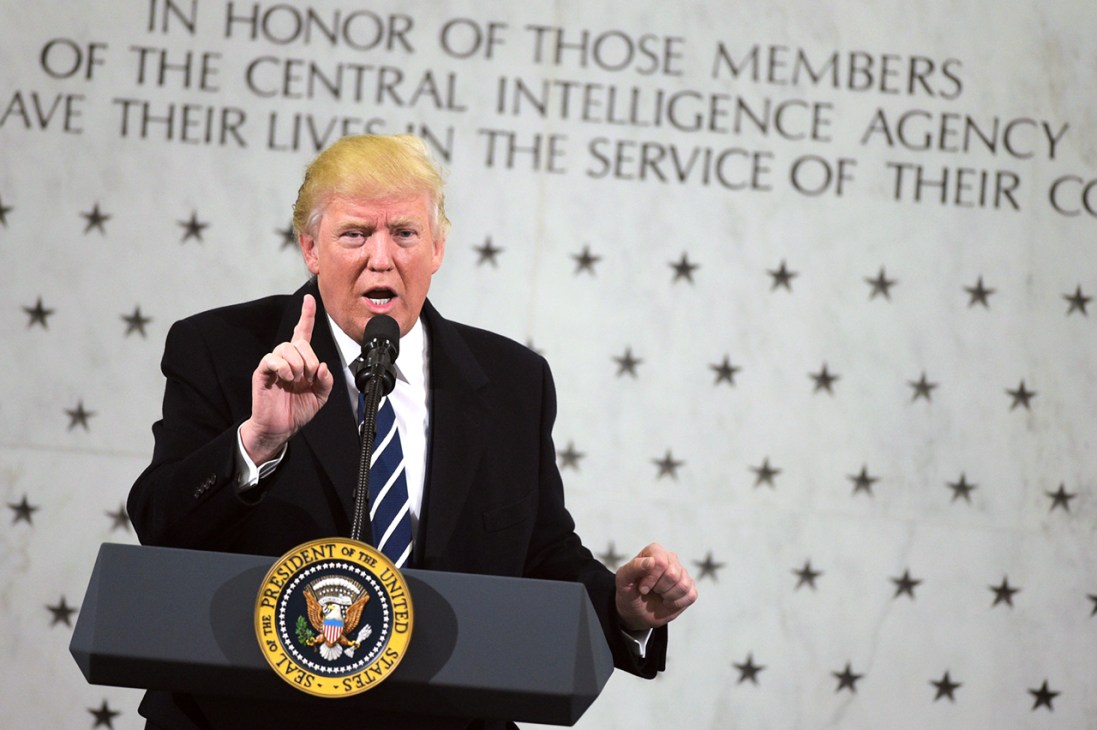External threats used to be the CIA’s biggest worry – now the threat is closer to home
Tim Weiner’s latest book, ‘The Mission: The CIA in the 21st Century’, is a history of the world’s foremost intelligence service, from September 11 to the present day. Here he tells Monocle about how the agency has changed since Donald Trump became president.
The collapse of the Soviet Union left the CIA bereft. How could it be a great intelligence service without a great enemy? Then, shortly after the turn of the century, the mission became clear: counterterrorism. The CIA was not set up to be a killing machine, run secret prisons or conduct interrogations but that is what it did in the name of counterterrorism. Terrorism swamped everything until roughly 2016, when Vladimir Putin monkey-wrenched the presidential election in favour of Donald Trump. After this, leaders of the Clandestine Service (basically, the spies) got together. Their top agent at the time, a man named Tomas Rakusan, whose roots are Czech and who was nine years old when Soviet tanks rolled into Prague in 1968, said, “Listen, the Russians just sabotaged our election. How do we make sure that this never happens again?”

People who had spent the previous 15 years targeting terrorists turned their talents on the Russians. They wrote a manifesto called “A Call to Arms” and their mission became penetrating the Kremlin. They succeeded in stealing Putin’s war plans for Ukraine. At the beginning of 2022, the US, armed with the CIA’s intelligence, tried to tell the world that Putin was about to launch a military invasion of Ukraine. And the world said, “Oh, yeah, really? Aren’t you the people who said Saddam Hussein had weapons of mass destruction?” Well, they were right. It didn’t stop the war but it certainly served as a unifying force to get Nato allied with the US in trying to fight the Russians.
The CIA has been essential to the survival of Ukraine ever since the Russian annexation of Crimea in 2014. This mission is now in great danger because the US president dislikes Ukraine and is perfectly willing to see Russia try to destroy it. He disdains alliances such as Nato and has alienated most of America’s friends. To be blunt, Trump has gone to the other side. He is objectively an ally of Russia in this war and you can put a date on it: 24 February. That was when the US voted with Russia, Iran and North Korea against a UN resolution condemning the invasion of Ukraine on its third anniversary. This is quite a head-spinning event for the officers of the CIA – to have a president who is breaking alliances and embracing enemies. The CIA relies mightily on unity with foreign-intelligence services to get a complete picture of the world. It is not, by itself, a global agency.
Today the director of the CIA, John Ratcliffe, will tailor information to please the president, a president who doesn’t believe in intelligence. You have a secretary of state who recently said to forget about intelligence when it came to the success, or lack thereof, of the US attack on Iran’s nuclear facilities. Trump is firing people in the national security establishment who won’t kowtow to him. This is a very dangerous situation. He has deliberately weakened the structures of American intelligence and foreign policy at a time when the US is gaining a lot of enemies in the world.
Tim Weiner is a US reporter and a Pulitzer Prize-winning author. ‘The Mission: The CIA in the 21st Century’ is his sixth book. To read more on geopolitics and security, head to monocle.com or subscribe to Monocle today.



